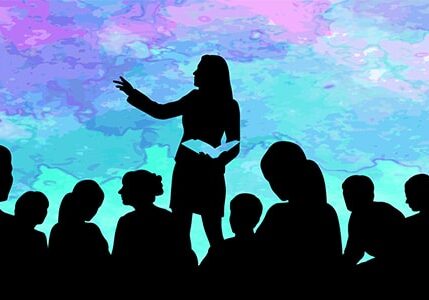The Importance of Women Educators
Updated: June 19, 2024
Published: March 8, 2022

March 8 being International Women’s Day offers us an opportunity to reflect on womanhood and education.
Much of the focus on education in the 21st Century globalised economy is on skills for the marketplace and aptitudes for global citizenship. However, what is taught in history tends to still be an investigation into conflict. Most students will have studied civil wars, world wars, invasions, and wars of independence. Furthermore, this tends to be draped in “Great Man Theory” whereby the iconic figureheads of these conflicts are generals and presidents and are almost always men. As such, even today in the 21st Century, the center stage of many modern history courses will be occupied by Napoleon, Bismarck, Hitler, Stalin, Churchill, and Eisenhower (to mention a few).
As educators strive to create a more peaceful world, it becomes increasingly important to move away from legacies of violence and dominion in history lessons and to focus on those that sought to end conflict. It is by the syllabus choices that are made that what is important and, perhaps subliminally, to be copied, becomes apparent. This is why it is important to teach stories of peace and peacebuilding. If we are going to fall into the “Great Man” trap again to do it, then it is probably more appropriate to call it “Great Women”, since it is often women who have built peace in history: Emily Pankhurst, Rosa Parks, Eleanor Roosevelt, Wangari Maathai, and Malala to mention a few.
Better still, is to deconstruct the idea of glorified individuals occupying historical narratives altogether and to look at history as a collective act that involves millions, many of whom have never had their voices heard, a “people’s history” as Howard Zinn called it. When this is done, many more female voices are heard.
Educational theory, like Western philosophy, tends to be dominated by a WASP, DWEM (White Anglo Saxon Protestant, Dead White European Male) club (Piaget, Vygotsky, Bloom) with an emphasis on observation, cognition, and output. By investigating pedagogies elaborated by women, new epistemologies emerge: education as an act that builds inquiry rather than instruction (Montessori), the development of morality more than knowledge alone (Simone Weil), rethinking categories via cultural anthropology (Margaret Mead), equal access to society through education (Linda Darling-Hammond), acceptance and celebration of alterity (bell hooks) and education for social justice (Angela Davis), for example.
Of course, there are men who have been pacifists and women who have been tyrants, and it is possible for male educators to drive a collectivist humane education and women an individualistic and imperialistic vision: it is important not to essentialize people based on prejudicial assumptions about their gender. However, if we considered many of the educational frameworks developed by women and taught history with some space on centre stage for women and not only men, history lessons would look very different, and perhaps there would be more peace, tolerance, and equity in the world.
